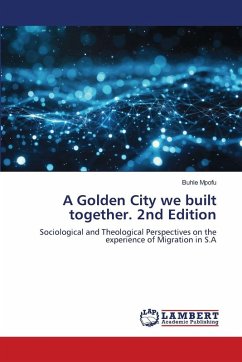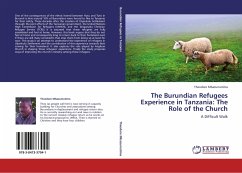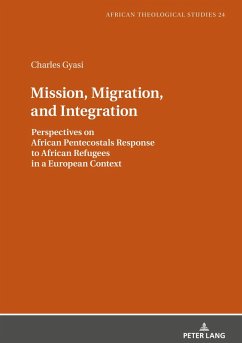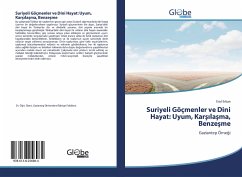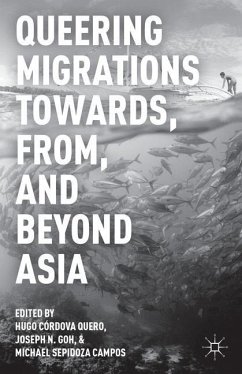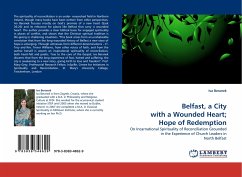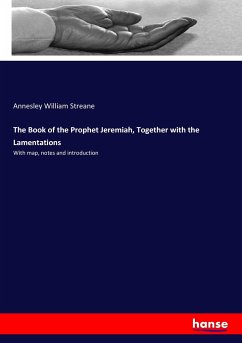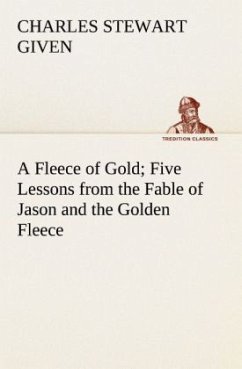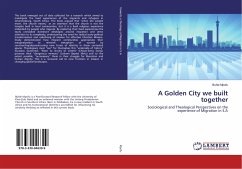
A Golden City we built together
Sociological and Theological Perspectives on the experience of Migration in S.A
Versandkostenfrei!
Versandfertig in 6-10 Tagen
49,99 €
inkl. MwSt.

PAYBACK Punkte
25 °P sammeln!
This book emerged out of data collected for a research which aimed to investigate the lived experiences of the migrants and refugees in Johannesburg, South Africa. The book argued that 'when the people move, the church moves,' as an assertion that the church is not the temples built in local communities, but it is a lived religious experience embodied by people who migrate. By exploring their lived experiences the study unmasked dominant ideologies around migration and drew attention to its complexity, underscoring the need for radical socio-political transformation and redefining of mission f...
This book emerged out of data collected for a research which aimed to investigate the lived experiences of the migrants and refugees in Johannesburg, South Africa. The book argued that 'when the people move, the church moves,' as an assertion that the church is not the temples built in local communities, but it is a lived religious experience embodied by people who migrate. By exploring their lived experiences the study unmasked dominant ideologies around migration and drew attention to its complexity, underscoring the need for radical socio-political transformation and redefining of mission for effective Christian Mission. Study demonstrated how migrant communities appropriate their marginalization to reinvent metaphors of survival by constructing/deconstructing new forms of identity in these contested spaces. Theologians must "see" for themselves this "underside of history" (Gustavo Gutierrez), "listen to stories of victims" (Choan-Seng Song), preserve their "dangerous memory" (Johann Baptist Metz) and to the extent possible, "accompany" them in their struggle for liberation and human dignity. This is a renewed call to new frontiers in mission in changing global landscapes.



